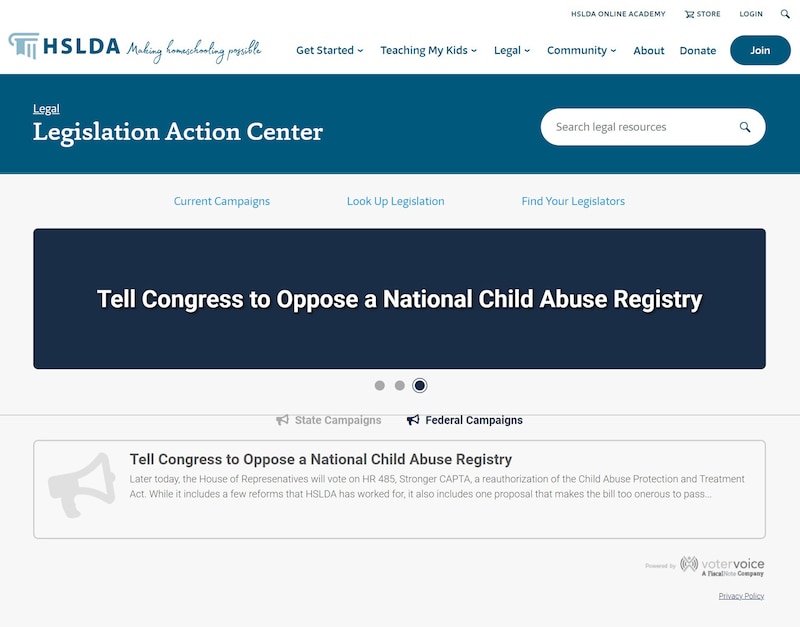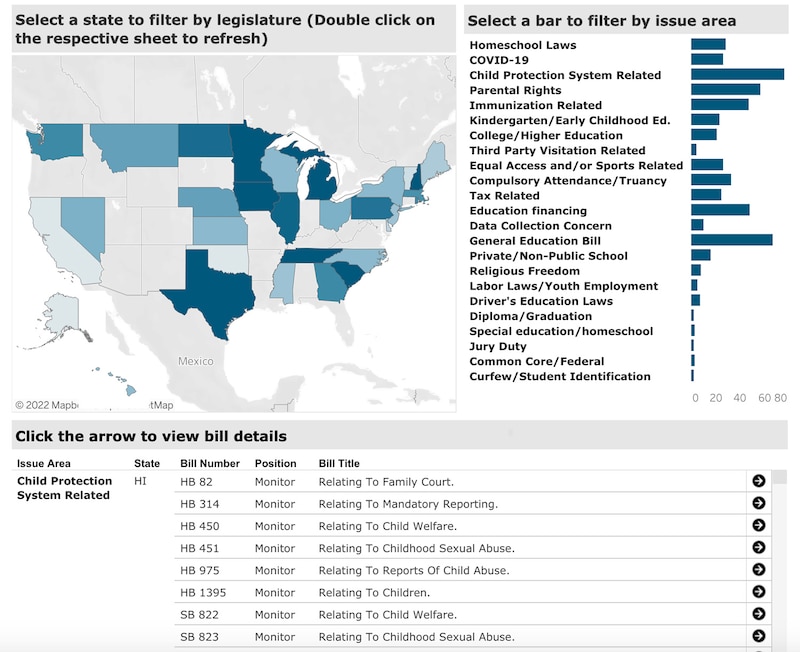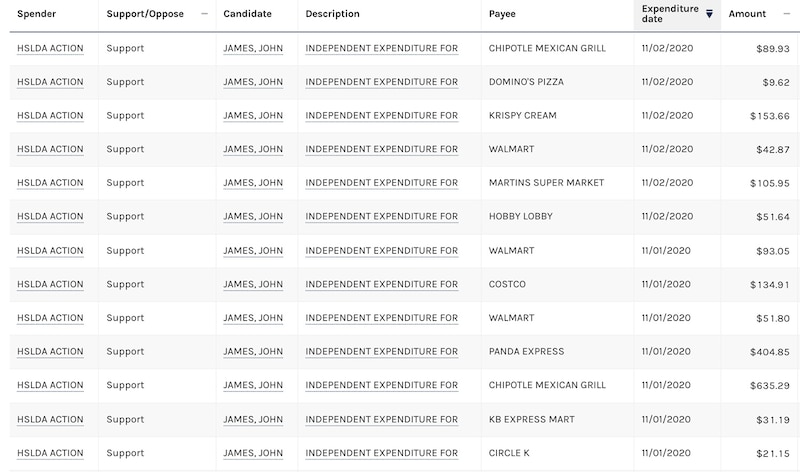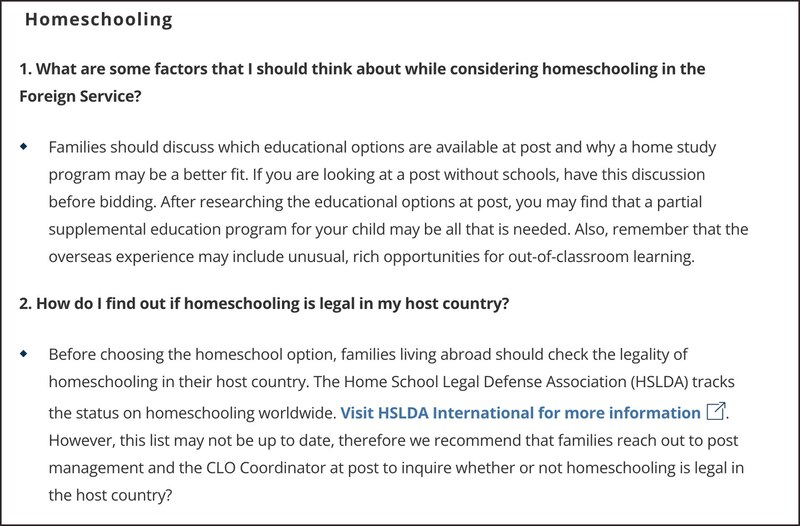This story was produced by Mary Steffenhagen, Harry Parker, Griffin Kelly, Sophia Lebowitz and Keith Paul Medelis for the NYCity News Service at the Newmark Graduate School of Journalism at CUNY. For the full report, go here.
More American families than ever educated their children at home during the pandemic, a trend that has continued for many households even after schools reopened. About one in 10 families were homeschooling near the start of the 2020-2021 school year, the latest available federal statistics show.
For businesses, this growing market is lucrative, valued at perhaps $2.5 billion. Many firms are lining up to sell textbooks and everything from bowling alleys to inflatable bouncy houses.
Home schooling is growing faster in certain states and among particular demographic groups. But there’s a lack of reliable research on how home schooled children are faring. Among the blind spots: Fewer than half the states even require educational assessments of home schooled students. And attempts to require criminal background checks for home schooling parents have failed in at least 12 states.
This rapid expansion is also raising more troubling concerns, with battles over government oversight and individual cases of child abuse unfolding in courtrooms and legislatures across the country.
At the center of these debates is a little-known, relatively small lobbying group with evangelical Christian roots, the Home School Legal Defense Association, whose outsized influence has been shifting public policy for decades.
The group has provided legal advice for parents of children in cases of suspected abuse and has fought some child-protection efforts as government overreach.
The NYCity News Service analyzed hundreds of court cases across the country, combed through lobbying and financial filings, and documented the patchwork of state-by-state home schooling regulations.
Among the findings:
- Courts across the country are grappling with how to protect children from abuse while HSLDA attorneys have been challenging many aspects of enforcement — even when authorities said they had reasonable cause to be concerned about the safety of children.
- HSLDA’s lobbying efforts extend far beyond education, claiming government oversight limits parents’ rights and religious freedom. A West Virginia lawmaker who proposed a bill to protect children at risk of abuse later said he never dreamed of the backlash he would face.
- HSLDA’s legal efforts encompass more than how children are taught, including actions contesting enforcement of an international chemical-weapons treaty and challenging how the military court-martials soldiers.
- HSLDA’s mission taps into a broader culture war over politics and religion. In our Home Ed podcast, listeners hear from a 30-year-old woman who was homeschooled as she recounts how that mission shaped her family’s life.
A powerful advocate for homeschooling lobbies against vaccine rules, other oversight
By Harry Parker and Mary Steffenhagen
A driving force behind America’s rise in home schooling is the Home School Legal Defense Association, a little-known group that lobbies across the country to ease government restrictions and oversight.
The Virginia-based group, almost four decades old with deep evangelical roots, vigilantly tracks legislation on homeschooling. Its work has spurred families to flood legislators’ phone lines, sparked rallies on Capitol Hill and pushed its causes through social media to spur supporters.
The HSLDA is “the most powerful legal and political advocate for homeschooling,” attorney Timothy B. Waddell wrote in a Vanderbilt Law Review analysis of the rise in homeschooling and lobbying by its proponents.
An examination by the NYCity News Service of public filings and other documents shows the organization, while combating rules on homeschooling, simultaneously presses legislatures on issues that have seemingly nothing to do with homeschooling.
In the past year alone, it has been fighting vaccination requirements and opposing a national child abuse registry—both in the name of defending parental rights.

Two recent lobbying efforts underscore the ways the HSLDA fights to give parents more say in educating their children.
It has fought a California proposal mandating kindergarten, contending parents should have the choice of when to start children’s schooling.
And when the pandemic began in 2020, HSLDA spotted a proposed Ohio law that a “qualifying parent” would determine if a homeschooled child was in a building that addresses COVID-19 safety concerns. The group was concerned the phrase could be interpreted to limit decisions by any parent homeschooling their child. The group deemed the provision “unnecessary and confusing” and launched a campaign to erase it. The bill did not get out of committee.
Jim Mason, HSLDA’s president, told the News Service his group is a typical lobbying organization using standard approaches. (Mason was HSLDA’s vice president of litigation and development at the time of this conversation.)
“We write, and we speak, and we travel, and we talk, and we hold rallies and we give speeches and homeschool families go to Capitol days. and deliver apple pie to the legislators to kind of get acquainted,” he said.
But there are a range of issues it lobbies on that are not about homeschooling.
Lobbying around immunization
Last year, the HSLDA fought a proposed Colorado rule that would require homeschooling parents to file immunization records with school boards, calling such documentation “unnecessary bureaucracy.”
That is not the only time it has fought immunization regulations. It opposed a Washington, D.C., immunization law enacted during the pandemic allowing children as young as 11 to decide with their doctors, and not their parents, if they wish to get government-approved vaccinations. HSLDA and other groups argue parents should have a say in whether their children get immunizations.
In addition, HSLDA opposed proposed congressional reauthorization last year of a federal child abuse prevention law, and seeking changes in the National Child Abuse Registry, the database of suspected or convicted abusers.
It favored a Michigan bill that would have exempted homeschooled children from needing work permits when seeking jobs during the school year. HSLDA said current rules require “homeschooled parents to trudge down to the local school office” needlessly. The proposal was vetoed by the governor.
“It’s just an ideological thing,” Mason said of HSLDA’s support of causes outside homeschooling. “I mean, we are more in favor of liberty and a permissive approach to child rearing and education as opposed to a kind of top-down, compliance-based model.”
Scott Somerville, a former HSLDA attorney who remains a supporter and has written about the organization’s growth, said its lobbying efforts on political issues beyond homeschooling regulations are an outgrowth of its members’ concerns.

“If there’s legislation that’s going to create a whole lot of new dumb stuff, I’m going to oppose it,” he said. “And if there’s legislation that’s going to make dumb stuff go away, I’ll support it,” Somerville told the News Service.
Somerville said one of the keys to understanding HSLDA is its evangelical Christian roots,
“It’s a religious organization,” said Somerville. “But the mission of HSLDA is to defend the right of every parent, not just Christian parents,”
“God gave parents rights,” he said. “Because we’re Christians, we believe in God. And because we’re Christians, we believe in those rights. And because we’re Christians, we’re gonna defend those rights.”
A central belief is protecting family privacy from what HSLDA sees as unneeded government regulation.
“We’re just simply sort of standing there, like the knob on the door, that keeps [the world] from busting in and interrupting what the family’s doing,” he said.
Jeremy Young, the then interim executive director of the Coalition for Responsible Home Education, which often opposes HSLDA on homeschool regulations, sees the efforts differently.
“There is a pervasive sense that anything that strengthens the hand of social services, [or] of child protective services in any way, is a slippery slope toward banning homeschooling and taking rights away from parents,” he said.
Raising Its Money
To finance its political lobbying efforts, HSLDA solicits money from homeschooling families and others by promising to help “overcome discrimination—in the courts, the legislatures, and public and private sectors—and by promoting the success of homeschooling in the court of public opinion.”
The HSLDA has more than 100,000 members, charging a $130 yearly fee. Their most recent publicly available tax documents show expenses totaling $12.9 million.
HSLDA also has a related political action committee that has supported several U.S. Senate candidates recently, spending a total of more than $300,000.
Federal Election Commission records show HSLDA Action supported unsuccessful Senate campaigns by spending $157,148 to help John James in Michigan and $39,915 for aiding Kelly Loeffler’s bid in Georgia. It also spent $135,589 to help the campaign of Thom Tillis in North Carolina, who won. All are Republicans.
The spending was in large part to bring volunteers to those states for door-to-door canvassing and support. HSLDA flew in volunteers on Delta, United, American and Southwest airlines.
When they were on the ground, there was spending for rental cars, gas, food and supplies. Receipts were billed for Chipotle, Dominos, Walmart, Walgreens, Einstein Bagel Co., Hobby Lobby and more.

Funding for the political action committee came overwhelmingly from another evangelical conservative political organization, the Family Research Council, which contributed $513,520 in late October 2020, just before the November national elections.
Sometimes HSLDA’s lobbying can be small-bore. In New Hampshire, HSLDA spent $270 in 2018 for a dinner and an event that included a legislator who is an ardent supporter of homeschooling.
To some critics HSLDA’s methods are overly aggressive.
“They’re using terrifying tactics,” said Elizabeth Bartholet, a professor at Harvard Law School. “The moment a bill is put on the table HSLDA is going to call its membership in that state, and that legislator’s going to have his office flooded or her office flooded. They’re going to have hundreds of emails, they’re going to have hundreds of telephone calls. Pretty much what’s happened is the legislators just say, ‘It’s not worth it.’ ”
Bartholet said HSLDA exaggerates the scope of those it represents and in reality is lobbying on behalf of a small slice of homeschoolers.
HSLDA, which has previously clashed with Bartholet, discounts claims that its lobbying is unusual.
“I kind of laugh when I read those sorts of things,” says Mason of the criticism. “Because I know what we actually do, and we’re just kind of like regular…we do just kind of regular advocacy. You know, through lawful means.”
Other opponents don’t see HSLDA’s approach as aggressive, just successful.
“I think they’re just doing politics very well,” says Young of the Coalition for Responsible Home Education. “The idea of mobilizing parents, homemakers, to advocate with legislators in large numbers with state legislators, many of whom don’t receive a lot of advocacy over time. That’s not new, it’s just being used very effectively. They’re bringing a very big gun to bear in a very small, with a very small target.”
National and international reach
HSLDA has also engaged in international efforts promoting homeschooling.
The organization filed an asylum application with the U.S. government to grant refugee status for a German family that wanted to homeschool their children but was prevented by rules in their native country. The effort was successful. It has pushed the Brazilian government of Jair Bolsonaro to foster homeschooling.
The U.S. State Department tells its diplomats and other employees that HSLDA is a resource if they are considering homeschooling their children overseas and want to further understand laws abroad.

There are other groups that promote lobbying, including independent organizations that may work with HSLDA on key issues.
In Texas, the Texas Home School Coalition has become a prominent HSLDA ally and become integral in a state where Republican elected officials are dominant.
Jason Sabo, a progressive lobbyist in the state’s capital of Austin, has witnessed how HSLDA and others have worked to persuade state legislators. He said they match better financed groups with grassroots energy.
“When it comes to lobbying, these groups like the HSLDA or Texas Home School Coalition, their power doesn’t come so much from the immediate money, but from just all of their supporters that are so impassioned,” Sabo said. “That’s where the power comes from. The lobby money is inconsequential.”
“You physically cannot walk around the Capitol building without basically being accosted by an incredibly polite, incredibly, well spoken, young men and young women–homeschool kids who will come up to you and say, ‘Excuse me, what do you do? Who are you? Why are you in the building?’” says Sabo. “They start off when kids are like 13 or 14, and they inculcate them to politics and to retail lobby.”
In West Virginia, HSLDA lobbied with a state ally, Christian Home Educators of West Virginia against a proposed law restricting suspected child abusers from homeschooling children.
The bill was proposed by Shawn Fluharty, a Democratic state lawmaker, after an 8-year-old girl was killed by a father who was under investigation by child protective services. The legislation would prevent a parent from beginning to homeschool a child if there the subject of an open investigation or if they had a child abuse conviction.
“I thought, well, the easy fix, right?” Fluharty said. “It’s really something that could have a drastic impact for the positive.”
Fluharty was surprised by the opposition.
“I thought it was a non-issue.”
Griffin Kelly and Keith Paul Medelis contributed to this story.


